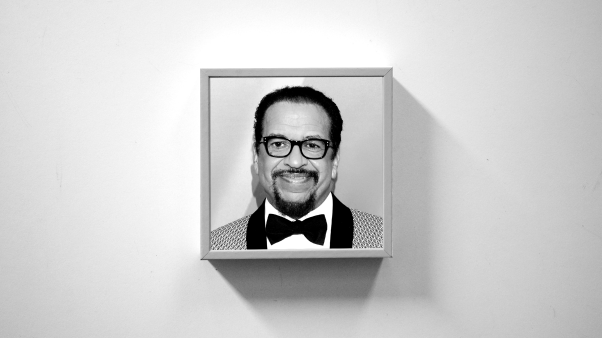Where does the sermon begin? I am all too familiar with the uneasy staring contest we preachers so often have with our blank screens—cursor blinking, taunting us to write something meaningful. But nothing comes. We’ve studied the text and done the exegetical work. We’ve prayed, pondered, and wondered. We’ve read the commentaries. And yet we somehow find ourselves back in our familiar place—blank screen, blinking cursor, at a loss.
There’s a story in Acts 17 that’s not usually thought of as a preaching story, because a whole lot more is going on in the narrative. But it is in fact—at least in part—a story about preaching. It’s right there in the text: “Paul was preaching the good news about Jesus and the resurrection” (v. 18).
The apostle finds himself in Athens, an influential city in the first century, full of aesthetic splendor and intellectual fervor. As he waits there for Silas and Timothy, the cultural and spiritual climate overwhelms him. Surrounded by the gaudy embellishments of buildings and structures dedicated to the various gods of polytheistic Athens, the text tells us that Paul “was greatly distressed to see that the city was full of idols” (v. 16).
The original Greek word for distressed indicates a stirring or provoking of the spirit. This brief passage about Paul preaching the gospel starts with a stirring, a particular provocation in his spirit, prompted by an idolatrous culture. This is where Paul’s sermon begins. I believe this is where our sermons should begin as well: stirred and provoked to respond as we stand at the intersection between text and context—what God may want to say through his Word (text) in this moment to these people living in this culture, navigating their specific circumstances (context).
We cultivate and craft the space for this sort of distress—this Spirit-led stirring and provocation within—by paying constant and prayerful attention to the lived stories of the communities we serve. As Thomas Long reminds us, “Preaching does not occur in thin air but always happens on a specific occasion and with particular people in a given cultural setting.” We listen for the specifics and watch for the particulars of the circumstances, questions, and tensions that our people are facing in their everyday lives. We confess the idolatry in our own lives and name the idolatry in our midst, both subtle and blatant. This is where the sermon begins, but it is not where it ends.
“So he reasoned in the synagogue with both Jews and God-fearing Greeks, as well as in the marketplace day by day with those who happened to be there” (v. 17). Paul’s distress leads him to reason. The original Greek word here indicates a thorough, well-thought discussion. Paul reasons in the synagogue and marketplace with all sorts of people representing all sorts of perspectives.
The very next verse tells us that Paul debated both Epicurean and Stoic philosophers, prominent deists and pantheists in the first century. Confronting and convincing such broad and prevalent worldviews of a new possibility would have indeed demanded a thorough and well-thought-out display of the gospel. In our increasingly post-Christian world, preaching offers us a similar opportunity to step into the void, to thoroughly and thoughtfully share God’s story. Preaching is, in essence, the proclamation and declaration of an alternative and subversive story of hope in the midst of the world’s prevalent stories.
At one church where I served, we tried to lean into this reasoning approach by inviting discussion and dialogue as much as possible. About once a month, we hosted an event called “Ask Me Anything” after the worship gathering, where everyone was invited to meet with the teacher and ask anything he or she would like regarding the sermon. Other churches I know have taken similar approaches, leveraging both in-person opportunities and online question-and-response events. Whatever the specifics, a reasoning approach to preaching calls us to journey alongside the full spectrum of people in our midst, through their valleys of doubt.
In the words of Dallas Willard, preaching comes down to “aiding others in removing doubts that hinder their enthusiastic and full participation in the kingdom of the heavens and their discipleship to Christ.” This approach necessarily involves working toward linguistic, cultural, and situational nuance. It also calls for deep theological engagement. Many of us have experienced how taxing this work can be intellectually, emotionally, and spiritually. In some ways, it’s much easier to develop a few trite points detached from the actual questions people carry. Yet most of us know and feel on a visceral level that to preach detached in this way risks preaching to no one. And so, effective preaching dives headlong into the mess and murkiness of people’s doubts, fueled by evangelistic longing and energized by a missional edge. Thorough and thoughtful work must be done if our preaching will compel an increasingly skeptical world.
Preaching is a challenging endeavor. But with distress as the starting point and reason as the ensuing path, everything begins to open up. We ask the Spirit of God to stir and provoke us in unique ways within our unique contexts. We do the hard work of thoroughly and thoughtfully acknowledging and addressing the doubts people carry. And as we do, we will find the blank screen and blinking cursor give way to surprising possibilities.
Jay Kim serves as lead pastor of teaching at WestGate Church in the Silicon Valley of California and teacher in residence at Vintage Faith Church in Santa Cruz, California. He is the author of Analog Church and also serves on the leadership team of the ReGeneration Project.










